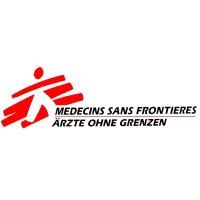
Job summary
Background
Médecins Sans Frontières (MSF) is an international, independent, medical humanitarian organisation that delivers emergency aid to people affected by armed conflict, epidemics, natural disasters, and exclusion from healthcare. These programmes are run through five operational centres. The Malaria Anticipation Project (MAP) is an MSF-UK project supported by the Operational Centre Amsterdam (OCA).
The MAP is entering a new phase to build on its previous objectives and outputs by further developing and expanding the use of the predictive Early Warning System (EWS) for malaria in MSF. This will be continued in Lankien, South Sudan, as well as a proposed comparison of predictive performance in Zamfara, Nigeria. This TIC-funded phase of the project will also produce a toolkit of resources to facilitate the operationalisation and adoption of anticipatory action, develop long-term data architecture and management of the system, and initiate a sustainable business strategy that can support wider scale up.
Scope of support required
The project requires support in developing a robust and realistic set of metrics by which to measure impact, outcomes and success of the project. Some rudimentary/proposed metrics and criteria exist but have not been applied, as the project moves from its development to deployment phase. In addition, support in developing and implementing a Monitoring and Evaluation (M&E) framework that can be applied during project phase and into post-project ‘business as usual’ to support ongoing use of the predictive malaria EWS model.
You will be expected to work closely with the MAP Researcher, who has responsibility for ensuring community engagement and working with the MSF project operations teams preparing for implementation. You will also work with the MAP Project Coordinator in terms of timelines, deliverables and liaising with other key stakeholders in MSF, as well as the two Project Co-Leads, who are internal subject matter experts in malaria, climate change data and anticipatory action.
The use of Artificial Intelligence (AI) and machine learning in humanitarian health organisations is an evolving field. Developing an M&E framework that accounts for this use of technology, as well as the challenge of ‘testing’ the efficacy of anticipatory action, is of particularly interest.
This does not require visits to the country of operation – Lankien, South Sudan.
Delivery timeframe
This support is project-critical, and its timeframes are based around malaria season and team availability to implement the EWS in South Sudan. Key dates and timeframes are as follows:
- Contract award, initial project onboarding and scoping with successful consultant – late August 2024
- Review of existing metrics and drafting of appropriate framework – September 2024
- Brief pilot of MAP Project Team applying M&E framework during early phase of malaria season (October 2024)
- Brief evaluation of M&E metrics, methods of collection, analysis and refinement of framework – November 2024
- Finalising framework and development of simple guidance document to support its use by staff, including documented handover – December 2024.
Requirements
- Develop and design appropriate project-based metrics and criteria in advance of the EWS implementation in Lankien.
- Develop and design a dedicated M&E framework for the MAP Project, ensuring the incorporation of field and technical team feedback – both for its project phase and into post-project operationalisation. (This must allow flexibility for potential scaling up to other MSF settings and sites).
- Work with the MAP Researcher, MAP Project Coordinator (and other team members as required) to plan and implement the data collection and analysis activities and strategy to support the M&E framework.
Specific deliverables
- Submission of a review of existing metrics and criteria.
- Advise MAP Project Team on gaps, weaknesses, with recommendations for a robust new model and framework.
- Submission of documented M&E framework with specific metrics, and means of collection, analysis and reporting.
- Implementation framework devised – in consultation with MAP Project Team.
- Submission of brief guidance document to support existing and future staff on how to use the M&E framework to support the ongoing use and potential adaptation of the framework in the future.
Profile of consultant
Essential:
- Masters or Bachelor’s degree in Statistics, Economics, Monitoring & Evaluation, Demography, Population Studies;
- Excellent knowledge of research systems, and data processes.
- Demonstrable understanding or experience of climate change adaptation in health projects.
- Excellent experience of developing and delivering M&E metrics and frameworks in both a project and operational environment.
- Demonstrated ability to cooperate and maintain effective relationships with key stakeholders.
- Strong team-working skills and experience, particularly in a matrix management environment.
- Excellent organisational and project management skills.
- Strong analytical and problem-solving skills.
- Ability to transfer knowledge effectively.
- Excellent communication skills, oral as well as written.
- Must be result focused and be able to work under pressure and tight deadlines.
- Fluent in English, written and speech.
- Demonstrated ability to deliver in an international and multi-cultural environment.
- Knowledge and working proficiency of Microsoft 365 environment including Teams and SharePoint.
Desirable:
- Previous experience of working in an NGO humanitarian organisation is also an advantage.
- Working knowledge of French
How to apply
To be submitted
- A proposal to include:
- Proposed approach
- A high-level plan
- What you see as being in/ out of scope
- Assumptions made, questions or areas of uncertainty.
- Examples of previous work – provide a summary of similar work that you have developed and delivered before.
- Your (and team members’, where appropriate) CV.
- Total fee proposal
Deadline: 18 August 2024
For further questions, please contact: admin.mu@london.msf.org

